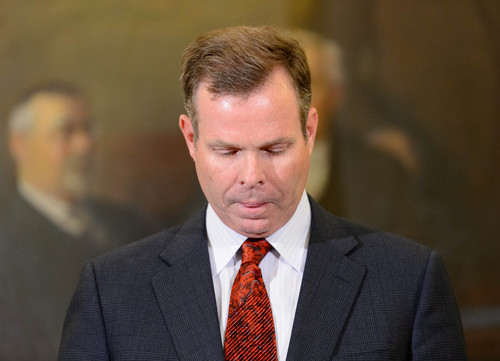This is an archived article that was published on sltrib.com in 2014, and information in the article may be outdated. It is provided only for personal research purposes and may not be reprinted.
It would be proper karma indeed for an "industry" that has done so much to undermine Utahns' faith in their attorney general's office — and, in the process, in their government as a whole — if the Legislature were to crack down on those businesses' most disgraceful practices.
But revenge is not the reason why state Sen. Curt Bramble is right to start the process of writing new laws that would make it easier to prosecute the bad apples in a relatively new kind of enterprise known as business-opportunity enterprises. Or BizOps, for short.
These are outfits that, online and by means of often aggressive call centers, promise customers that they can launch their own businesses and offer to sell them how-to advice and other tools that will help those businesses to become successful.
Yes, it sounds like the get-rich-quick schemes that have bedeviled TV characters from The Honeymooners' Ralph Kramden to Family Guy's Peter Griffin.
But the real problem has been repeated assertions — not just by unhappy customers, but also by federal and state regulatory agencies — that BizOps operations are riddled with bad apples who make unsupportable promises about how much money their customers are likely to make, pressure customers into expensive upsells, even bill customers' credit cards for unordered goods and services.
Some of those operations had drawn so much suspicion from the Federal Trade Commission and the Utah Department of Commerce that their owners were eager to find friends in high places. Especially the Utah Attorney General's office. Some of them funneled large amounts of money into the campaigns of former AGs John Swallow and Mark Shurtleff, going to great lengths to wine and dine them.
Others in the industry allege that they were basically shaken down by the Shurtleff-Swallow machine, demanding money in return for promises that any future allegations against them could be swept under the rug.
The charges and counter-charges were at the root of the scandal that forced Swallow to resign and leaves both he and Shurtleff under the shadow of multiple investigations.
This is what happens when an entire business model operates in an area where practices are new, rules are vague, jurisdictions overlap and a state has no limit on campaign contributions. New laws, and the structure to enforce them, are necessary.
Both buyer and seller need to know what's legal, what's not, and that the law will fall like a ton of bricks on those who defraud their customers.



